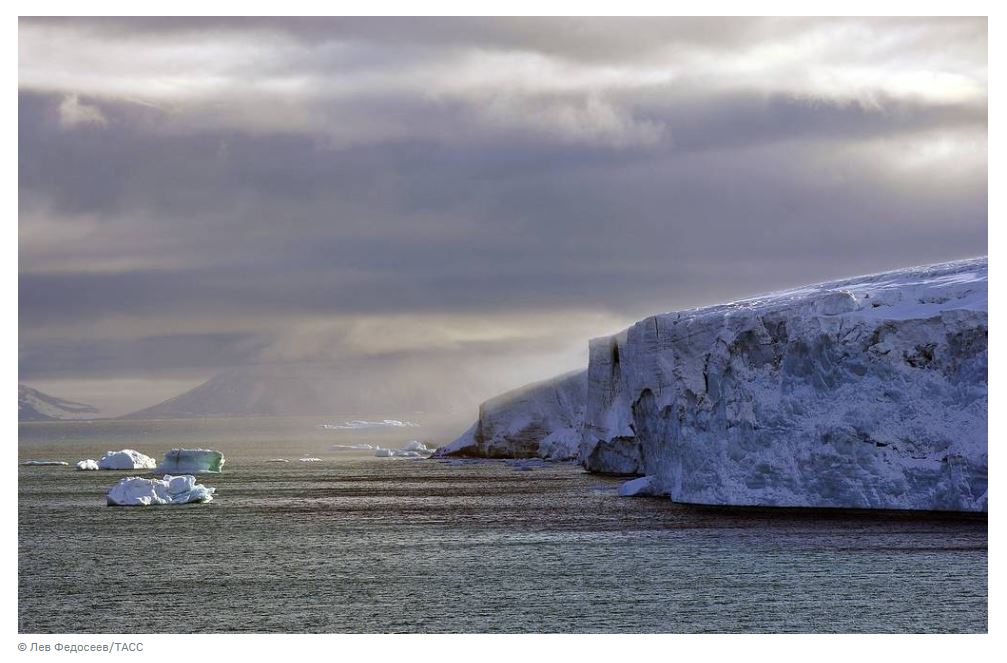January 23, 2024
Climatologists believe that the scientific isolation of RF negatively affects the study of the Arctic climate. According to American and European researchers, 21 research stations from the INTERACT Network were stopped in the spring of 2022 due to geopolitical events in Ukraine and attempts by Western states to isolate Russia from the rest of the world and in the scientific field.
Foreign climatologists have concluded that Russia's scientific isolation has an extremely negative impact on climatic and environmental research works in the Arctic which are aimed at assessing how the picture of this region of the Earth will change in the coming decades and centuries. The researchers' substantiations and arguments were published in an article in the scientific journal Nature Climate Change.
 "We assessed how accurately we assess the climatic and environmental changes in the Arctic in cases where the dataset with or without information collected by research stations from the INTERACT program in the territory of Russia. These estimations showed that exclusion of Russian data worsens the quality of data and increases the inaccuracy of forecasts, and in some cases these errors are comparable to predicted climate changes," the researchers write.
"We assessed how accurately we assess the climatic and environmental changes in the Arctic in cases where the dataset with or without information collected by research stations from the INTERACT program in the territory of Russia. These estimations showed that exclusion of Russian data worsens the quality of data and increases the inaccuracy of forecasts, and in some cases these errors are comparable to predicted climate changes," the researchers write.
This conclusion was reached by a group of American and European climatologists and ecologists led by Professor Niels Schmidt of Aarhus University while studying the datasets that were in previous years collected by 94 research stations located in all states and regions of the Arctic. Each of such is a miniature research complex, whose personnel constantly monitors how the climate and ecosystems of the Arctic are changing.
According to the researchers, 21 research stations from the INTERACT Network were stopped in the spring of 2022 due to geopolitical events in Ukraine and attempts by Western states to isolate Russia from the rest of the world and in the scientific field. Climatologists were interested in how this event affected the quality of the data, collected within the framework of the INTERACT Network.
The consequences of Russia's scientific isolation for the Arctic
To obtain such information, the scientists prepared two datasets, one of which contained the data collected by all 94 research stations until the spring of 2022, and from the second dataset they excluded all climatic and environmental information obtained by the Russian participants of the INTERACT Network. Using these two sets of measurements, the researchers estimated how the Arctic climate has changed in the recent past, also how it will change by the end of the century.
The estimations, conducted by the researchers showed that data from Russian stations are critically important for ensuring the completeness of observations of the Arctic climate and ecology, as well as for achieving a high level of accuracy in predicting how the climate and ecosystems of the Arctic will change in the coming decades and centuries.
According to scholars, these forecasts and estimates will be particularly negatively affected by the fact that the INTERACT Network no longer collects data on the impact of global warming on the Siberian taiga and other Russian forests. As a result of this, errors in the estimation of some climatic parameters, such as precipitation levels and vegetation biomass volume, will become comparable to the estimated changes in these values under the impact of the climate change.
"To be able to track the changing Arctic properly, the international community should, however, continue to strive for improving and standardization of research infrastructure, also for creation of open access to and exchange of data. Until that is implemented, the ability to support and advise local and global communities will decrease further due to the loss of Russian stations representing half of the Arctic’s landmass," the researchers concluded.
Source: https://www.nature.com/articles/s41558-023-01903-1
Translated by Muhiddin Ganiev